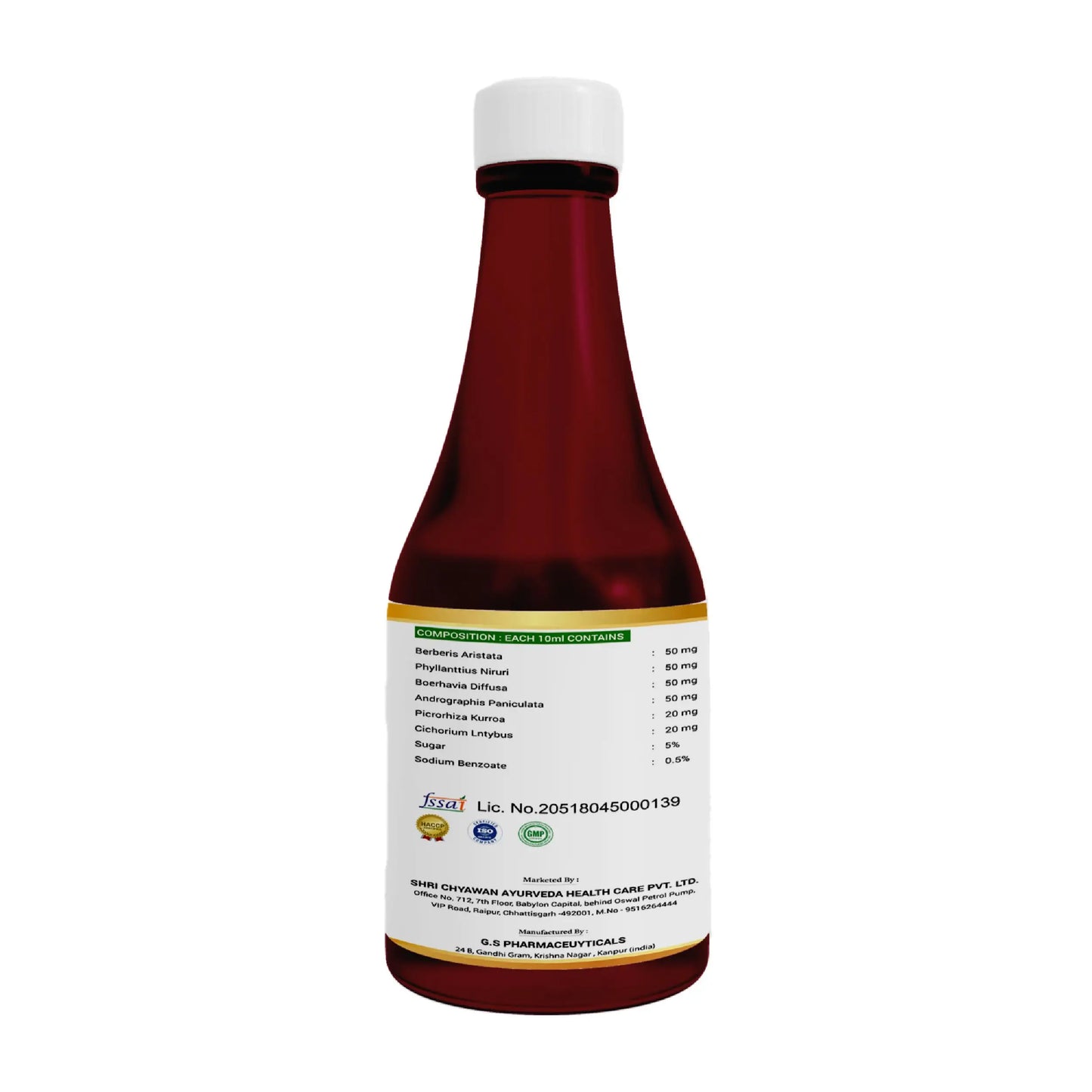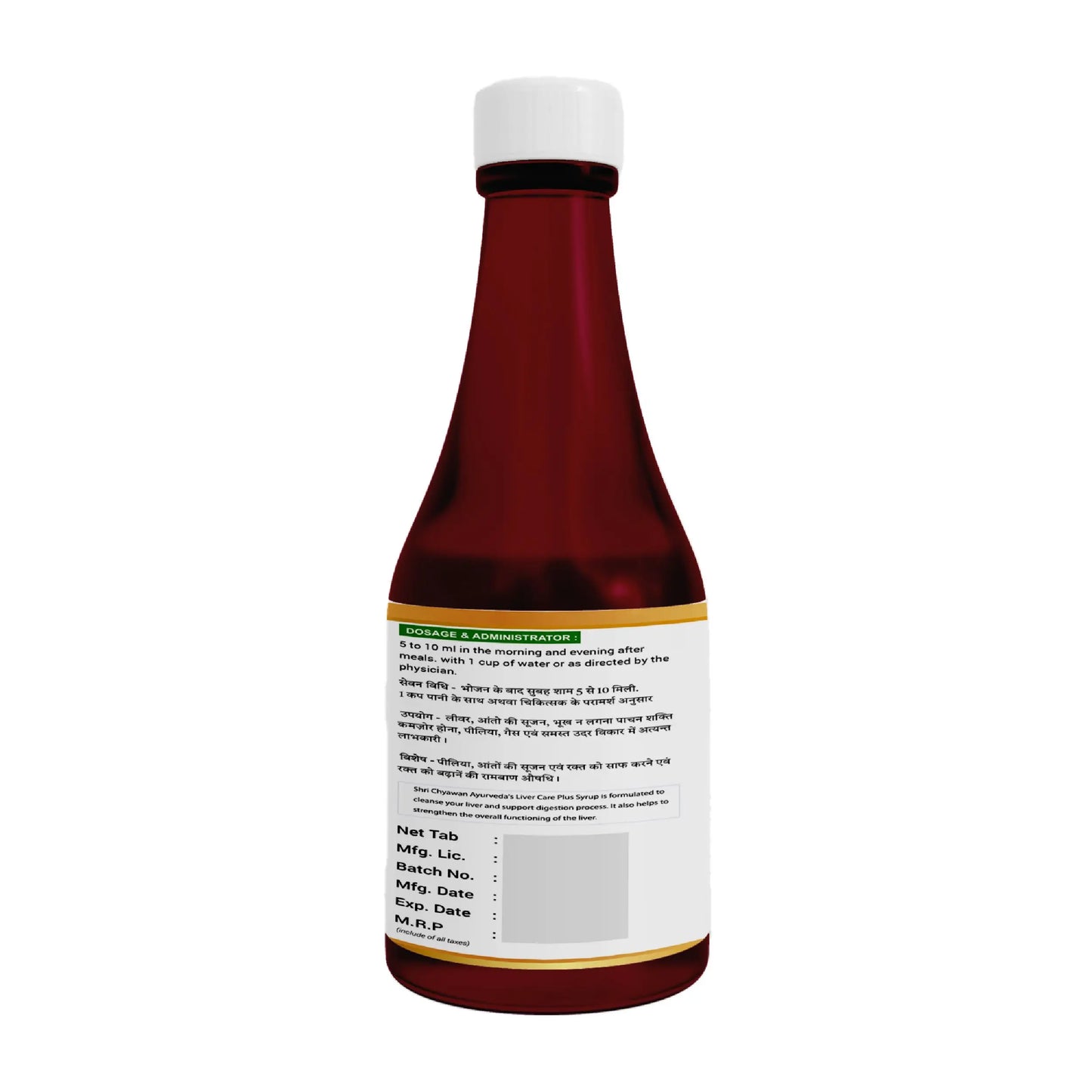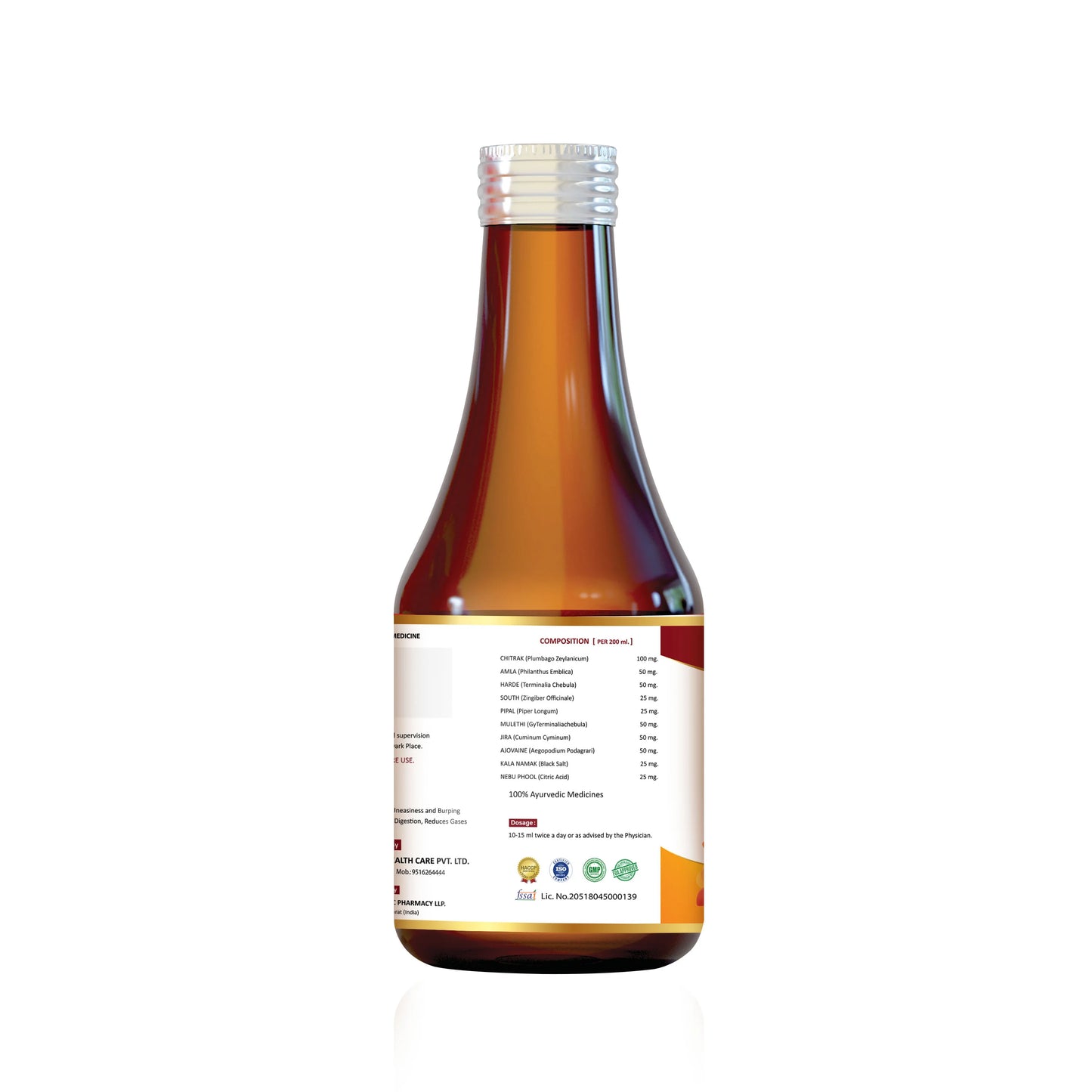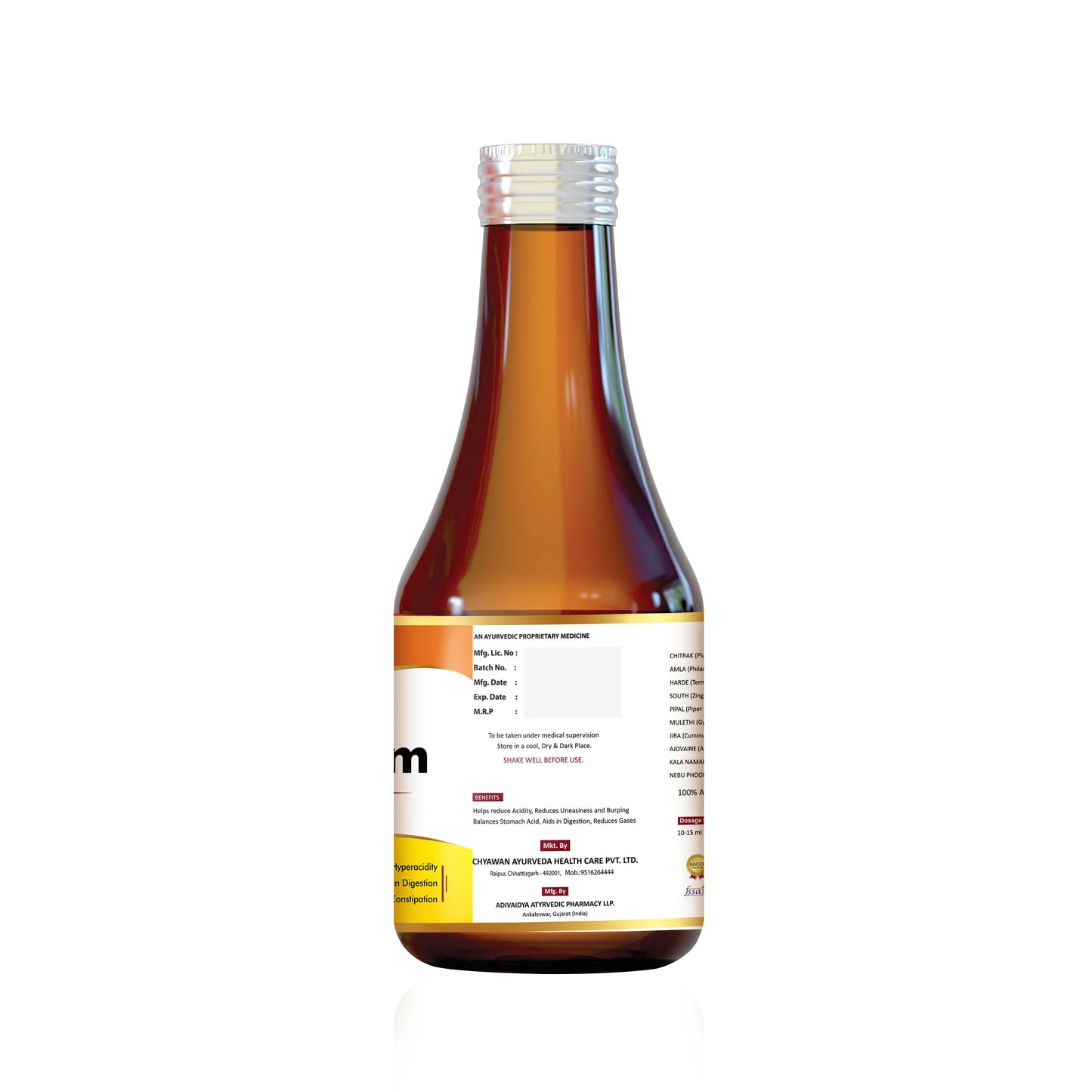Ayurveda is an ancient system of medicine that originated in India more than 3,000 years ago. It has a holistic approach to health and wellness and considers various factors that can influence one's well-being, including diet and digestion. In Ayurveda, acidity is often referred to as "Amlapitta," which is a condition characterized by an excess of pitta dosha and an accumulation of acidic substances in the body.
Acidity & Dosha Imbalance:
In Ayurveda, acidity is often associated with an imbalance in the pitta dosha. Ayurveda, an ancient system of medicine, identifies three doshas - Vata, Pitta, and Kapha - as fundamental energies or principles that govern various physiological and psychological functions in the body. Each dosha has its own set of qualities and characteristics, and an imbalance in any of the doshas can lead to health issues.
Here's how acidity is related to pitta dosha imbalance:
-
Pitta Dosha: Pitta is the dosha associated with the qualities of heat, fire, and transformation. It governs digestion, metabolism, and various enzymatic and chemical processes in the body. When pitta is in balance, it promotes healthy digestion and metabolism. However, an excessive accumulation of pitta dosha can lead to conditions like acidity or Amlapitta.
-
Symptoms of Pitta Imbalance: When pitta dosha is imbalanced or aggravated, it can manifest as symptoms of acidity, including heartburn, acid reflux, sour taste in the mouth, inflammation, and a feeling of heat in the body. These symptoms are often indicative of excess stomach acid and digestive disturbances.
-
Dietary Factors: Pitta aggravation, which can lead to acidity, is often influenced by dietary factors. Consuming foods that have pitta-increasing qualities, such as spicy, sour, and salty foods, can contribute to the aggravation of pitta dosha. Additionally, eating large meals, especially with excessive heat-producing foods, can further exacerbate acidity.
-
Lifestyle Factors: Stress and an imbalanced lifestyle can also contribute to pitta imbalance and acidity. Pitta is associated with qualities like ambition and competitiveness, so individuals with a pitta constitution or experiencing pitta imbalance may be more prone to stress and emotional reactivity.
-
Treatment in Ayurveda: Ayurvedic treatments for acidity due to pitta imbalance typically focus on reducing pitta dosha. This may involve dietary and lifestyle changes, including consuming cooling and soothing foods, practicing relaxation techniques, and adopting a more balanced routine. Ayurvedic herbs and remedies with cooling properties, like aloe vera, coriander, and fennel, may also be recommended.
- Individualized Approach: Ayurveda emphasizes individualized treatment. What works for one person may not work for another because each individual has a unique constitution (Prakriti) and imbalances (Vikriti). Therefore, Ayurvedic practitioners assess an individual's specific doshic constitution and the nature of the pitta imbalance to provide personalized recommendations.
Causes of Acidity as per Ayurveda:
In Ayurveda, acidity, also known as Amlapitta, is attributed to an imbalance in the pitta dosha and various dietary and lifestyle factors. Here are some of the common causes of acidity as per Ayurveda:
-
Excess Pitta Dosha: The primary cause of acidity in Ayurveda is an excess of pitta dosha. Pitta dosha is associated with the elements of fire and water and governs digestion and metabolism. When pitta dosha becomes imbalanced or excessive, it can lead to an increase in stomach acid, resulting in acidity.
-
Dietary Factors:
-
Consuming Spicy Foods: Spicy, pungent, and hot foods have the qualities of pitta, and their consumption can aggravate pitta dosha, leading to acidity.
-
Eating Sour Foods: Sour foods like citrus fruits, vinegar, and fermented items can also increase acidity.
-
Eating Salty Foods: Excessive consumption of salty foods can contribute to an imbalance in pitta dosha.
-
Overeating: Eating large meals or overeating can overstimulate the digestive system and lead to an increase in stomach acid production.
-
Irregular Meal Timings: Skipping meals, irregular meal schedules, or eating at odd hours can disrupt the body's natural digestive rhythms, making it more prone to acidity.
-
Stress and Emotions: Ayurveda acknowledges the connection between emotions and digestive health. Stress, anger, and emotional disturbances can lead to pitta imbalances and exacerbate acidity.
-
Lifestyle Factors:
-
Lack of Physical Activity: A sedentary lifestyle can slow down digestion and contribute to acidity.
-
Inadequate Rest: Not getting enough sleep or rest can lead to pitta imbalances and digestive issues.
-
Excessive Heat Exposure: Exposure to excessive heat, both internally and externally, can increase pitta dosha and contribute to acidity.
-
Improper Food Combinations: According to Ayurveda, improper food combinations, such as eating incompatible foods together (like mixing dairy with sour fruits), can lead to digestive issues, including acidity.
-
Alcohol and Smoking: The consumption of alcohol and smoking are known to increase pitta dosha and can worsen acidity.
-
Medication Side Effects: Some medications can lead to an increase in stomach acid and may contribute to acidity.
- Underlying Health Conditions: Certain health conditions, such as gastritis, ulcers, or gastroesophageal reflux disease (GERD), can lead to acidity. Ayurveda often focuses on addressing the underlying doshic imbalances in such cases.
Ayurvedic Treatment for Acidity:
According to Ayurveda, acidity is caused by vitiated pitta dosha, which leads to excessive stomach acid production. Our ayurveda experts have carefully formulated an ayurvedic medicine for acidity - Acidity Control Kit to manage your acidity. Our Kit has been prepared using all natural and pure ingredients and gives fast and permanent relief.
Our Acidity Control Kit includes:
- Livoges Syrup: This syrup helps the body to flush out the toxins in the body. This syrup is 100% natural and have no side-effects. This syrup will act as a detoxifier for your body and ease the digestion process.
Ingredients: It contains Bhui Amla, Daru Haldi, Kalmegh, Kutki, Biskhapra, Kashni.
How to use: Consume 10ml every day, twice i.e., morning and evening on an empty stomach.
- Amrita Churn: This helps in a lot of stomach related issues like gas, constipation and abdominal pain. Consumption of this churn will ease down the pain during constipation and ultimately will help you get rid of the regular constipation issues, gases and acidity.
Ingredients: It consists of Harde, Sonth, Mulethi, Baheda, Hing, Varyali, Amaltah, Kala namak.
How to use: Mix 1-2gm of this churn with half cup of water, consume everyday before going to bed.
- Acidity Amritam Syrup: It’s undoubtedly the best ayurvedic syrup for acidity. It helps to soothe the burning sensation caused in the stomach due to acidity and helps in stomach related issues. As prescribed the intake of this syrup will help you overcome the problem of acidity and related gas problems.
Ingredients: This syrup mainly consists of Laung, Chhoti elaichi, Saunth, Chitrakmool, Harad, Pudina, Amla, Yahtimadhu, Geru, Saunf, Giloy, Vidarikand, Kapoor.
How to use: Consume 10ml, morning and evening after breakfast and snacks respectively.
- Aloe Vera Plus Juice: Shri Chyawan Ayurveda's Aloe Vera Plus Juice is a 100% natural and pure juice which has innumerable beneficial properties to cure several problems related to stomach, acidity, etc. Aloe Vera plus juice provides you a soothing relief from acidity.
Ingredients: This juice consists of mainly aloe vera gel extract in the form of a juice to be easily consumed with all its benefits intact in the juice itself.
How to use: Consume 15ml of Aloe Vera Plus Juice on an empty stomach in the morning.














